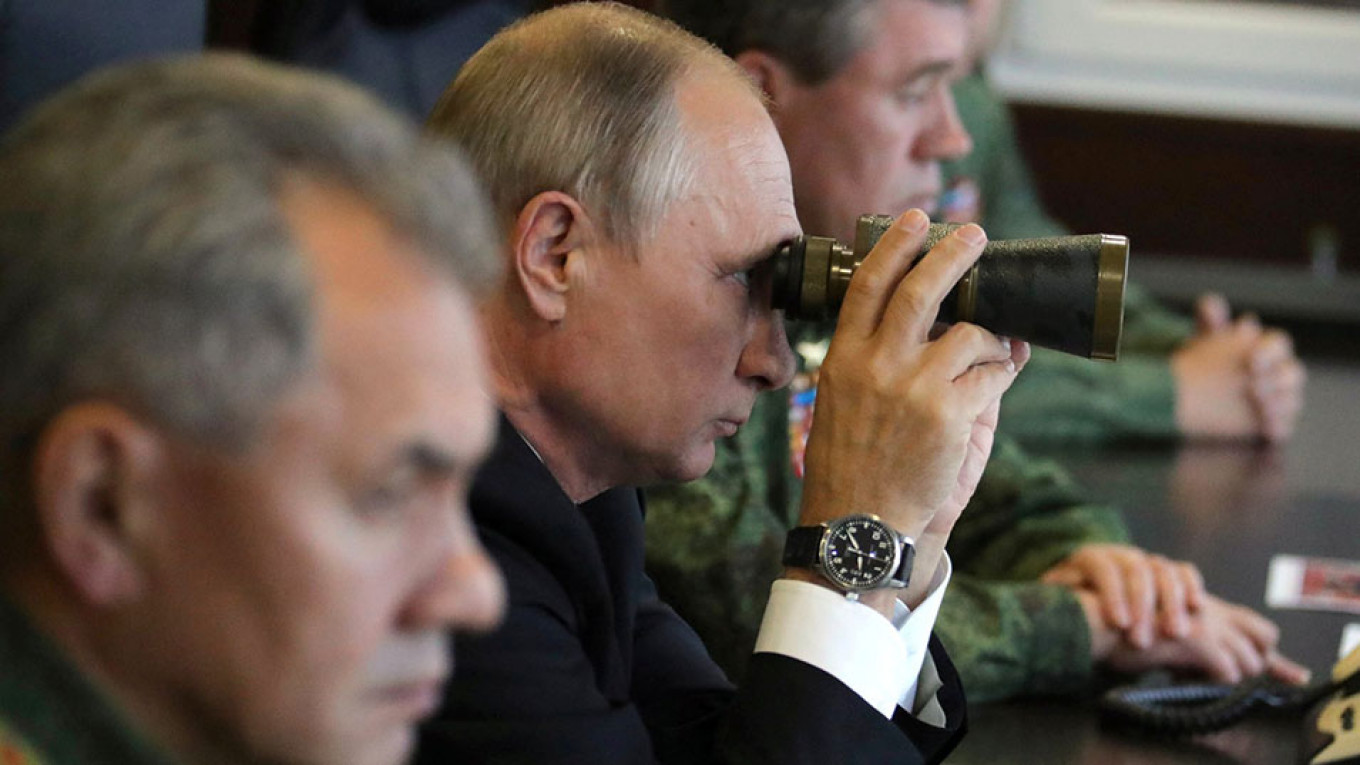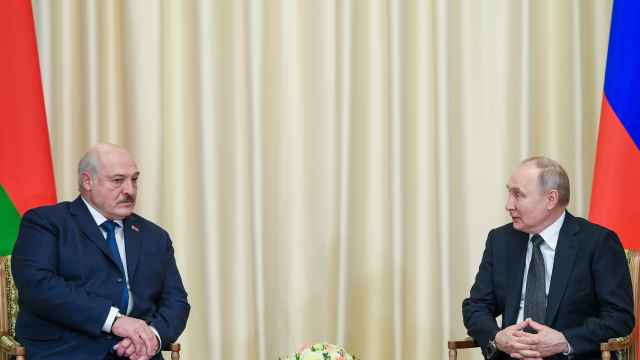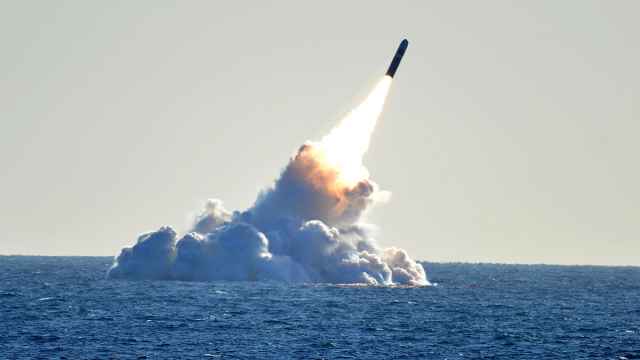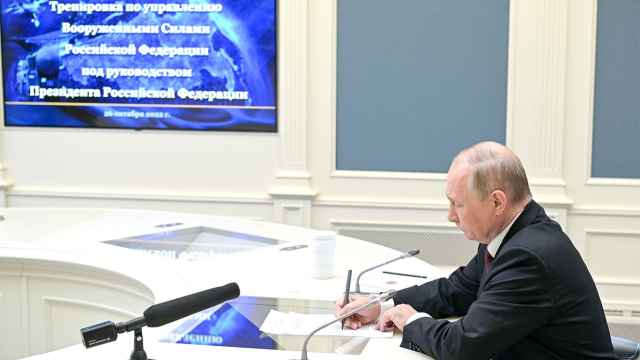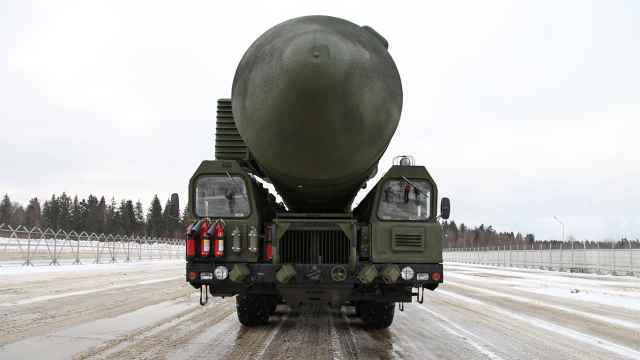Moscow isn’t the only place where you can see signs that all is not well in Vladimir Putin’s Russia. A Russian missile test gone wrong on Aug. 8 took at least five lives. The confused partial explanations that followed confirmed that the Russian authorities can’t be trusted to tell the world or their own people the truth about nuclear accidents.
Soon after an explosion at the Nyonoksa testing ground in the Arkhangelsk region in northern Russia, the city authorities in Severodvinsk, a nearby city with a population of about 190,000, reported that radiation levels had jumped for about an hour, though remaining within safe limits. The report, however, was pulled from the city’s official website (only screenshots exist today). The Defense Ministry, however, issued a press release saying a “liquid fuel missile engine” had blown up, which would leave the radiation leap unexplained. It didn’t help that the military closed the part of the White Sea surrounding the testing ground for civilian shipping.
Rumors proliferated and locals throughout the region rushed to pharmacies to buy up iodine, used to mitigate radiation’s effect on the thyroid gland. On Aug. 10, Rosatom, the state-owned corporation in charge of Russia’s nuclear program, put out its own statement saying five of its employees died in the accident and three more were injured; according to the statement, they had been “involved in servicing isotope power sources on a liquid fuel engine.”
Thus, it admitted that the accident had been nuclear in nature. Yet Norway’s Radiation and Nuclear Safety Authority, which would be among the first to notice any significant radiation release in northern Russia, has not noted any increase.
Rosatom’s vague explanation appears to hint at a device known as a radioisotope thermoelectric generator (RTG); unlike a reactor, it doesn’t use a chain reaction but rather converts heat from the natural decay of radioactive materials into electricity. Such generators are used, for example, on spaceships and satellites to power them when solar batteries are of no use. It’s conceivable that such alternative power sources could be installed on a missile — for example, to change its course during flight. That an RTG was involved would be consistent with a low, non-threatening radiation discharge.
The Burevestnik theory contradicts earlier leaks about the new missile; according to those leaks, it would use solid, not liquid, rocket fuel to launch. But, since a reactor-powered missile is expected to leave a radioactive trace as it flies, it would be consistent with a brief leap in radiation levels if the missile took off and then fell into the sea. The Serebryanka, a nuclear fuel carrier ship, was recorded as present in the area; it was used last year to search for another Burevestnik, which reportedly crashed into the sea after its reactor failed to start up.
All of this, of course, requires a lot of guesswork. That’s exactly the point. Various Russian entities involved in the failed test and affected by it have dropped hints and dangled imprecise, but scientific-sounding descriptions. On the basis of the publicly available information, all one can do is theorize, as Lewis has done. That shouldn’t be the case with even the smallest, least threatening of nuclear accidents. Nor is it OK to take days to admit that a radiation accident has taken place.
What happened in the Arkhangelsk region was no second Chernobyl. The reactor or nuclear generator will probably be recovered without further damage to people’s health or the environment. But the authorities should have provided a clear explanation to locals and to neighboring countries. After all, everyone knows, thanks to Putin, that Russia is testing nuclear-powered missiles; it’s reasonable to expect that some of the tests will fail.
It’s unreasonable, however, to expect people to trust a government that keeps its cards so close to the chest — not for the first time. The sight of people snapping up iodine tablets despite calming statements from officials is more of a comment on the Putin regime than a missile test failure. Russians don’t trust their authorities, and no one else should trust Putin’s government, either, even in matters of life and death.
This article was originally published by Bloomberg.
A Message from The Moscow Times:
Dear readers,
We are facing unprecedented challenges. Russia's Prosecutor General's Office has designated The Moscow Times as an "undesirable" organization, criminalizing our work and putting our staff at risk of prosecution. This follows our earlier unjust labeling as a "foreign agent."
These actions are direct attempts to silence independent journalism in Russia. The authorities claim our work "discredits the decisions of the Russian leadership." We see things differently: we strive to provide accurate, unbiased reporting on Russia.
We, the journalists of The Moscow Times, refuse to be silenced. But to continue our work, we need your help.
Your support, no matter how small, makes a world of difference. If you can, please support us monthly starting from just $2. It's quick to set up, and every contribution makes a significant impact.
By supporting The Moscow Times, you're defending open, independent journalism in the face of repression. Thank you for standing with us.
Remind me later.



